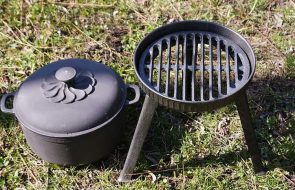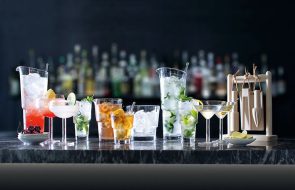In today's fast-paced world, housewives are less and less likely to stand at the stove trying to make a delicious pie. After all, it's much easier to order baked goods in a cafe or bakery, wait ten minutes, and a delicious, beautiful and fragrant cake is already on your table. But, you must admit, even modern business ladies have days when they want to make their favorite baked goods with their own hands, add more filling, bake the crust until the desired golden blush and put all their warmth and love into the dishes to please not only their family and friends, but themselves first and foremost.
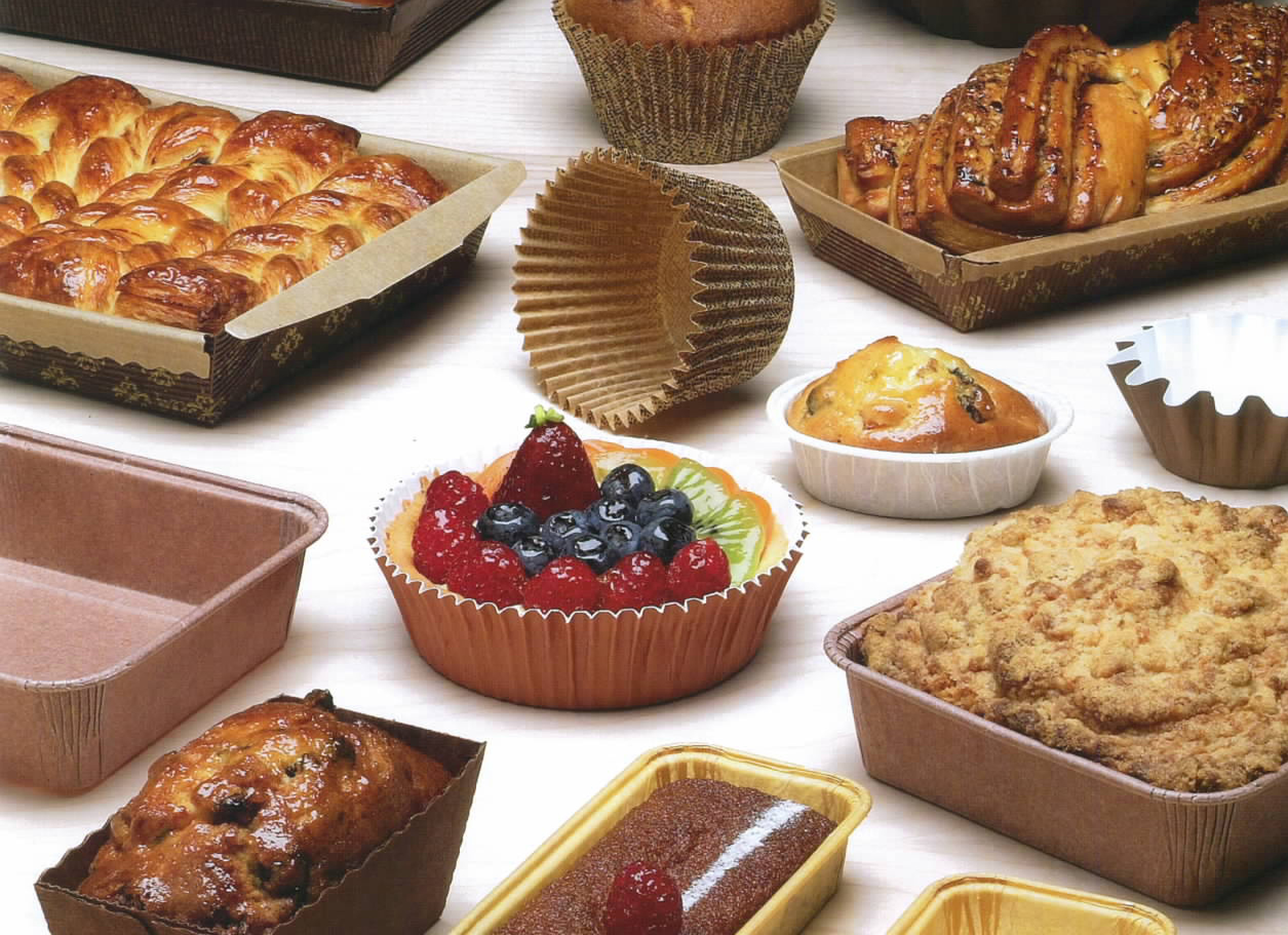
For such purposes, when you just want to try something new for yourself, but also not spend a lot of material resources on a potential hobby, disposable baking molds, sold in some stores individually, are just perfect. Our article today will be about them, we will talk in detail about their varieties, pros and cons, volumes and sizes and much more.
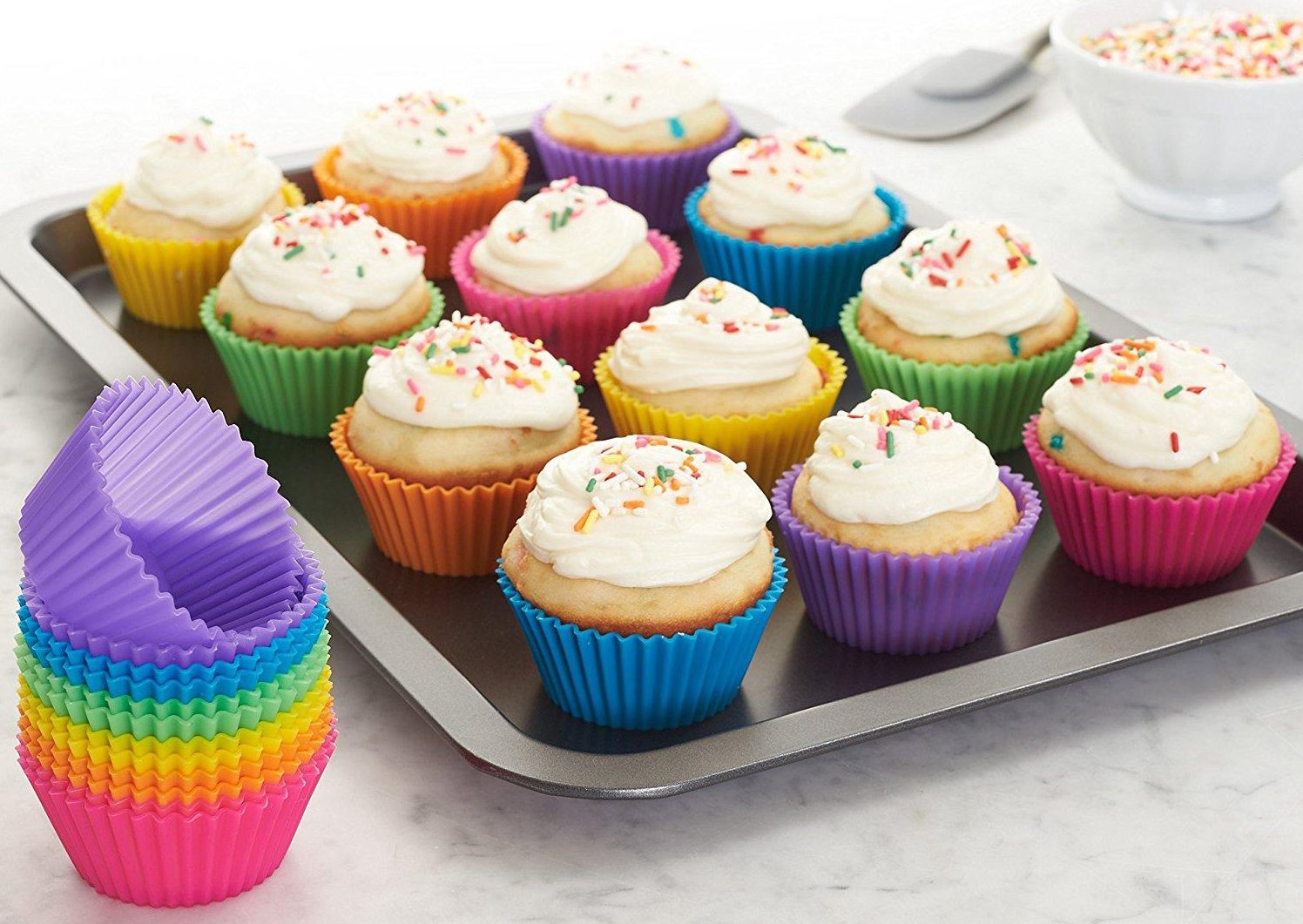
Content
What are disposable baking sheets?
If you've never baked muffins, cupcakes, or pies before, you probably don't have a good idea of what disposable baking pans actually look like. So before we get started, it's worth talking a little about what these dishes actually are.
A disposable baking pan is a monolithic structure that holds its shape and is resistant to large temperature differences. Most often, relatively hard materials are used to make such a baking sheet, but soft capsule inserts are also available on the modern market. Such an analogue can be easily cleaned of oil and dough and reused, so it will be more environmentally friendly, which is welcomed in the modern world.
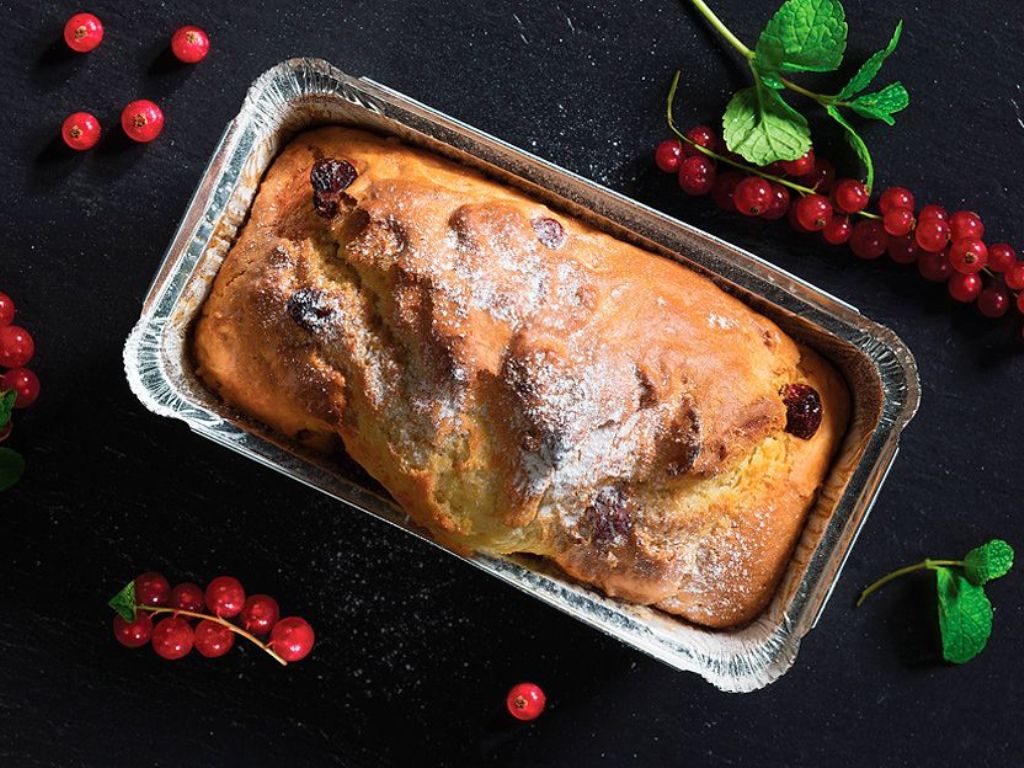
Such dishes will be useful for those people who adhere to healthy eating for several reasons. Firstly, disposable baking sheets do not require abundant greasing of their walls with oil, secondly, their bottom does not need to be sprinkled with flour, semolina or breadcrumbs.
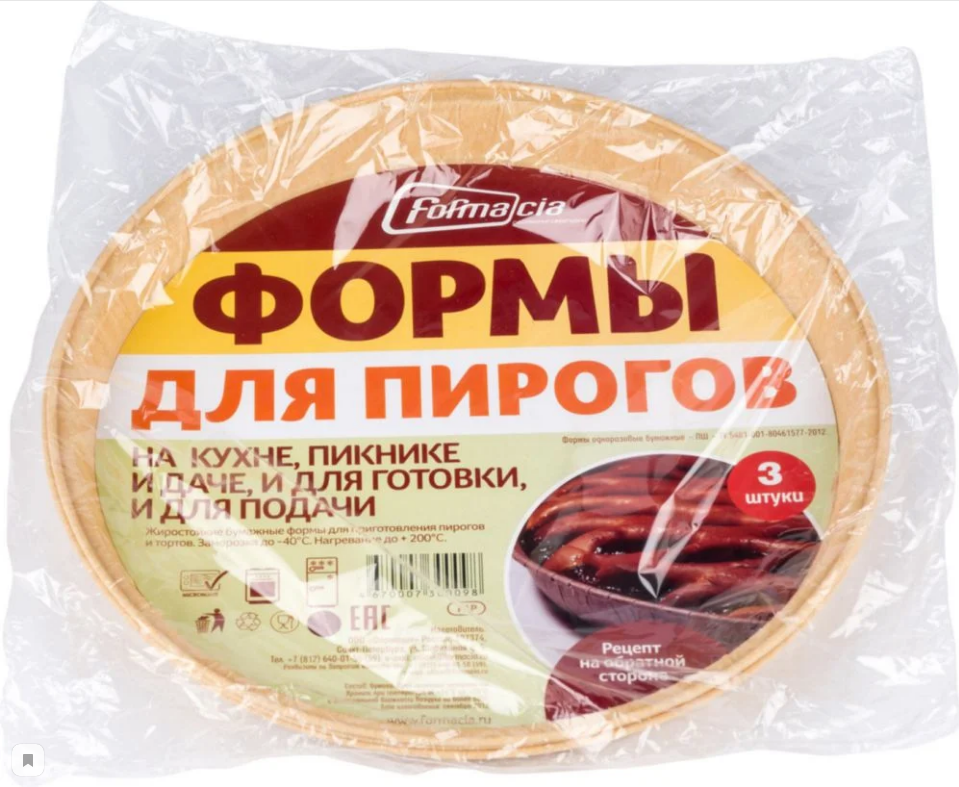
Advantages and Disadvantages of Disposable Baking Pans
Now it's worth talking about the pros and cons of disposable baking utensils.
Please note! Some advantages and disadvantages are relative and there is simply no perfect list. Everyone decides for themselves what kind of tableware to use: disposable or reusable.
Let's start with the advantages.
- Minimal weight of the dishes. Such baking trays are easy to move from one place to another and take out of the oven with the already prepared dish.
- Multifunctionality. Such cookware is suitable for cooking many types of dishes: these are delicious oven-baked omelets with a porous structure, pies with filling, open American pies, cake layers and various cakes, cupcakes, muffins and other delicious types of cakes, as well as lasagna, juicy meat and potatoes.
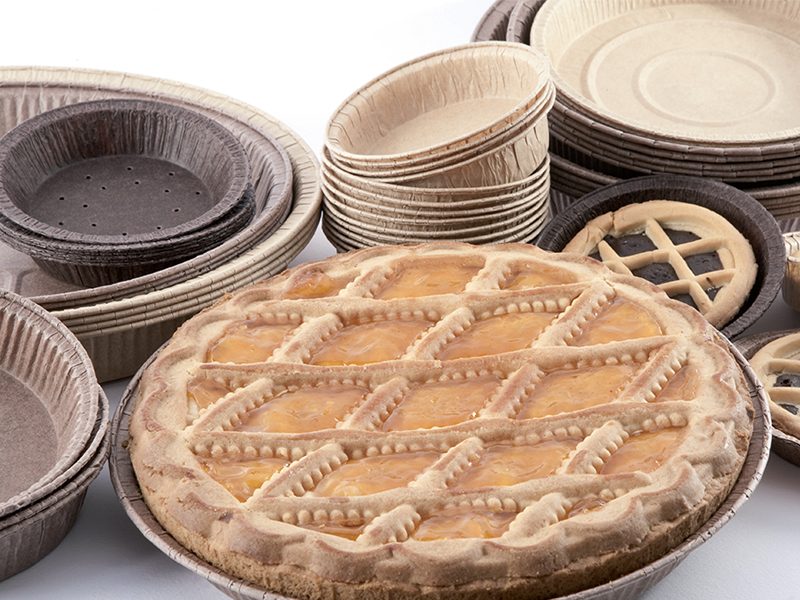
- Convenient storage. Disposable baking pans do not take up much space in the kitchen and are quickly used without cluttering up the space for a long time. If desired, one pan can easily be placed in the second.
- This form does not need to be washed, which significantly saves precious time in the modern world.
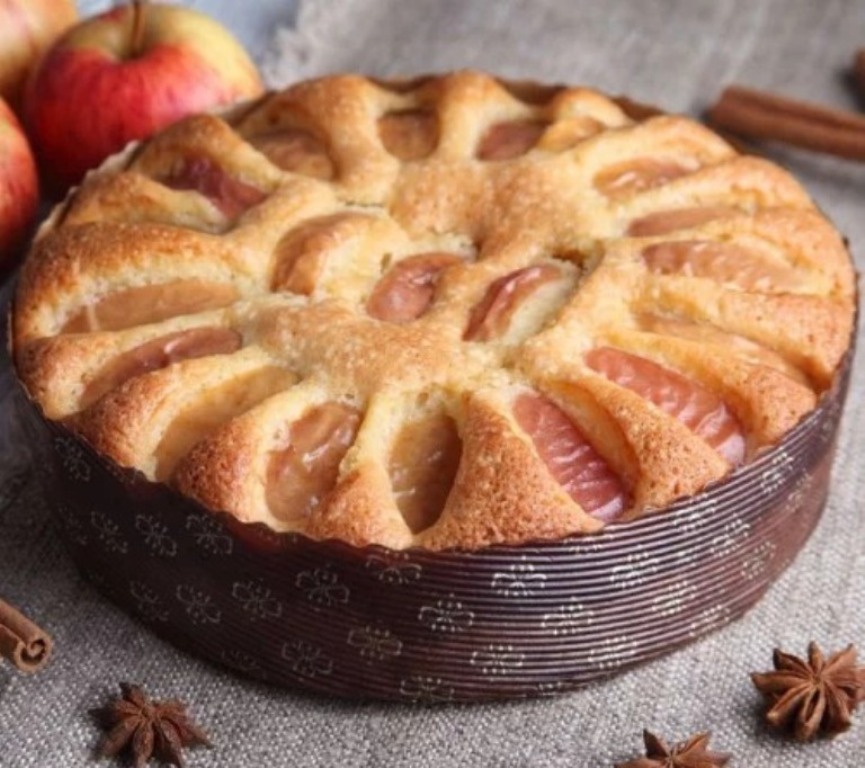
- If cooking is not your constant hobby, and you do it only from time to time, then you should not think about buying expensive metal, ceramic or glass forms. Instead, it is enough to buy disposable forms as needed. Moreover, they are relatively inexpensive.
- A large percentage of such forms are safe for human health, since they do not release toxic substances into food when heated.
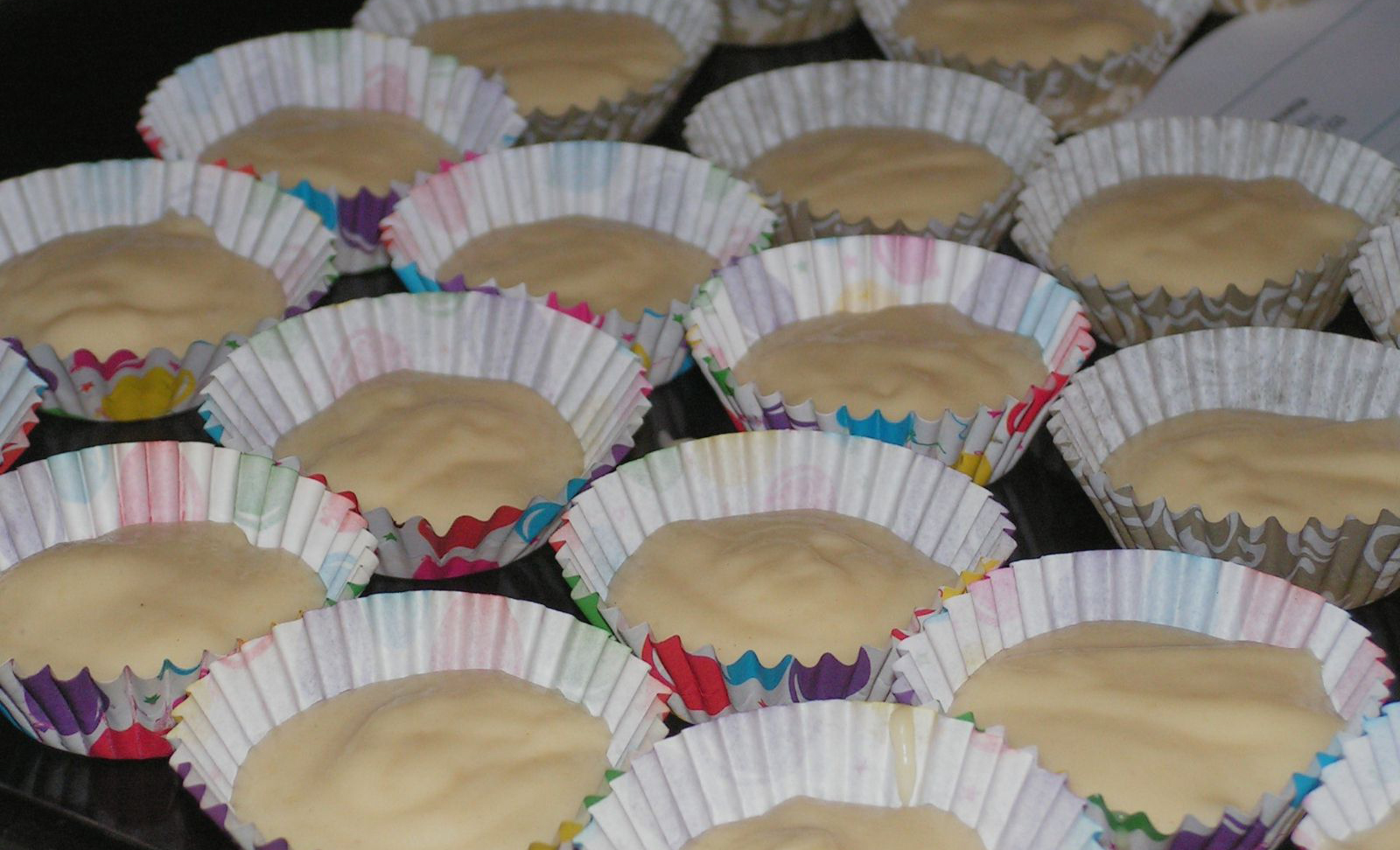
- It happens that due to insufficiently good cleaning of reusable containers, poor drying or malicious non-observance of storage standards, colonies of harmful bacteria appear on their surfaces: E. coli, staphylococci and mold fungi. Such problems almost never happen with disposable tableware. Of course, provided that you really only used it once.
- Attractive appearance. Most baking forms, especially for cupcakes, muffins and cupcakes, have an attractive appearance. They are decorated with glitter, cheerful inscriptions, and playful pictures. This creates a cheerful holiday atmosphere even on a dull gray weekday.
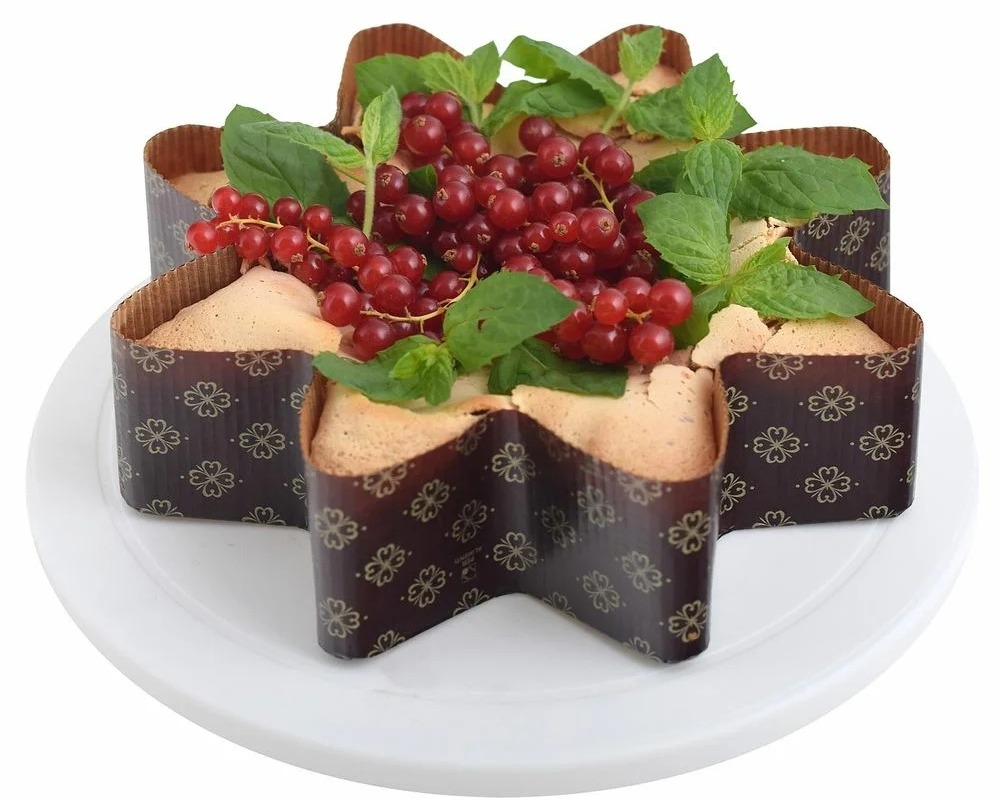
Now let's move on to the analysis of obvious shortcomings:
- Eco-friendliness. Whatever anyone says, disposable tableware is still disposable, and after you use it, it will either end up in a landfill, where it will decompose for centuries, poisoning the air and soil, or end up in the ocean, where it can kill many living organisms. Disposable polymers used to make baking pans are not recyclable. Foil becomes unusable after the first use and is also not recycled. The same sad story happens with paper.
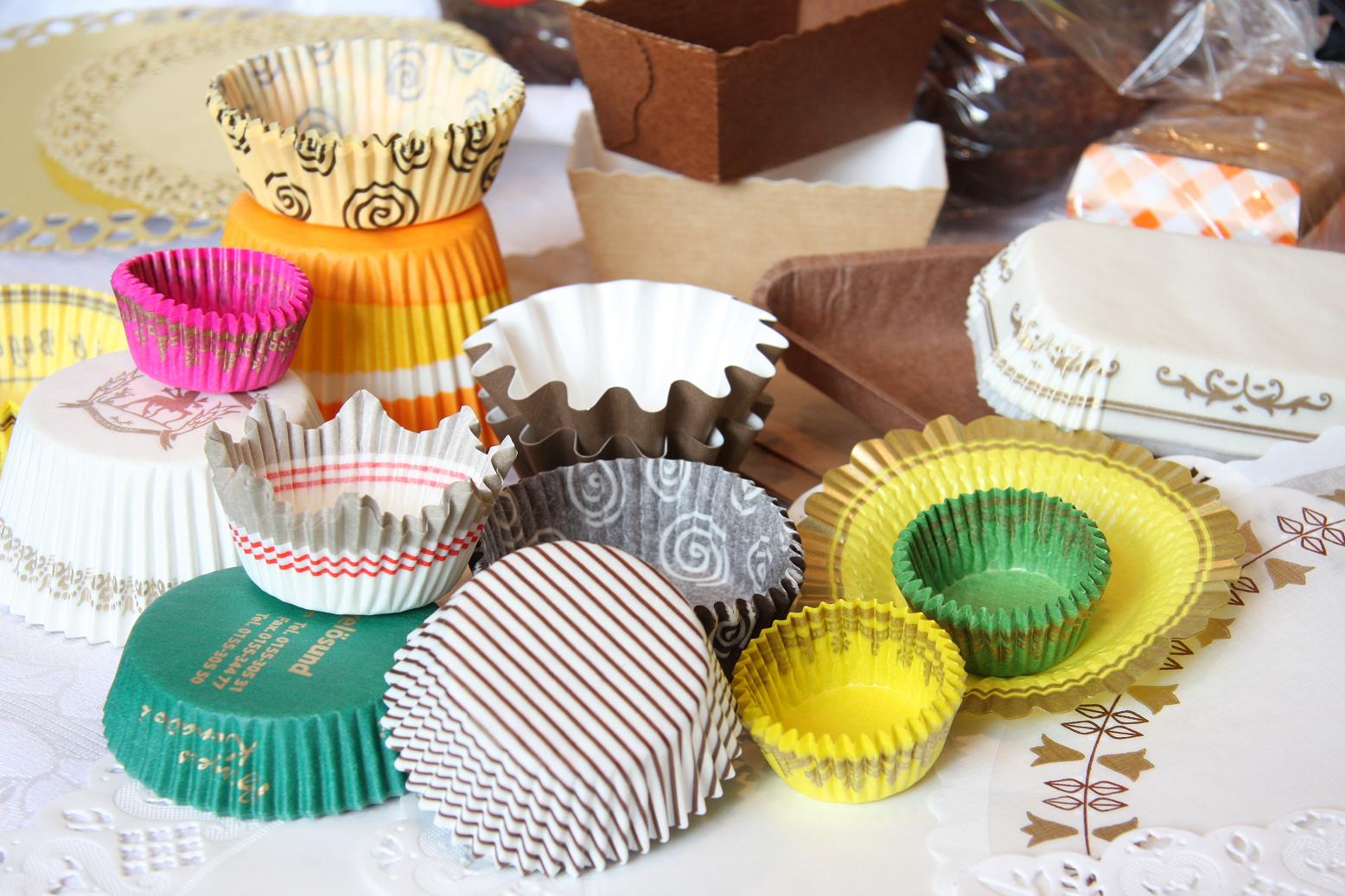
- Appearance. It is difficult to find beautiful and cheap disposable tableware in the city. So you will have to order from online stores, and this takes quite a lot of time and nerves.
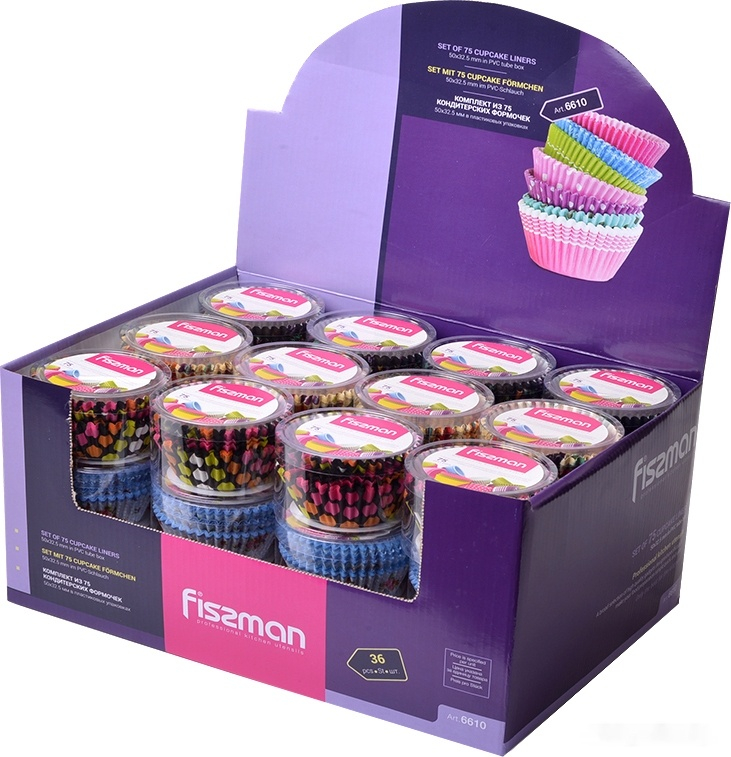
- Health factor. If you use a baking dish that contains plastic, you should understand that you are doing great harm to your health. At high temperatures, plastic decomposes into particles that are very toxic. Imagine eating a petroleum product along with your favorite dessert.
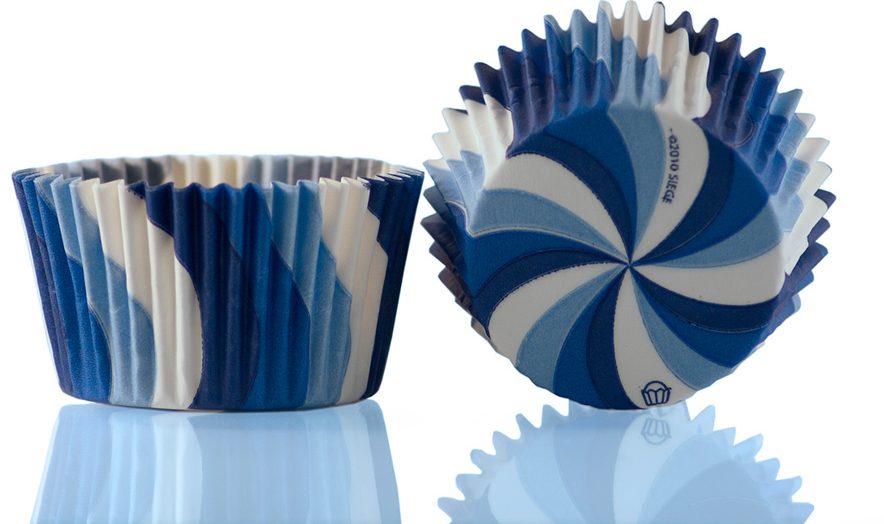
- If you bake a lot, buying a whole bunch of disposable dishes just doesn't make sense. It will cost you a lot of money and will also be a huge polluter.
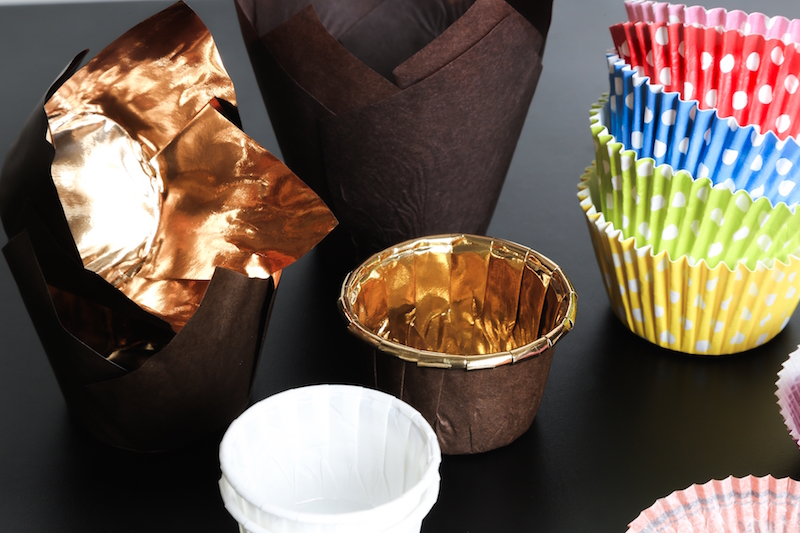
To sum it up, we see that disposable tableware has slightly fewer disadvantages than advantages, but they are quite significant and simply cannot be ignored.
Properties and functions of baking pans
In fact, baking tins can have many more properties than it might seem at first glance. It is worth showing a little imagination, ingenuity and resourcefulness, and disposable tableware reveals itself from new surprising sides.
- In addition to the familiar and understandable baking function, a disposable form can retain heat, especially if you use a lid for it and it contains a foil layer.
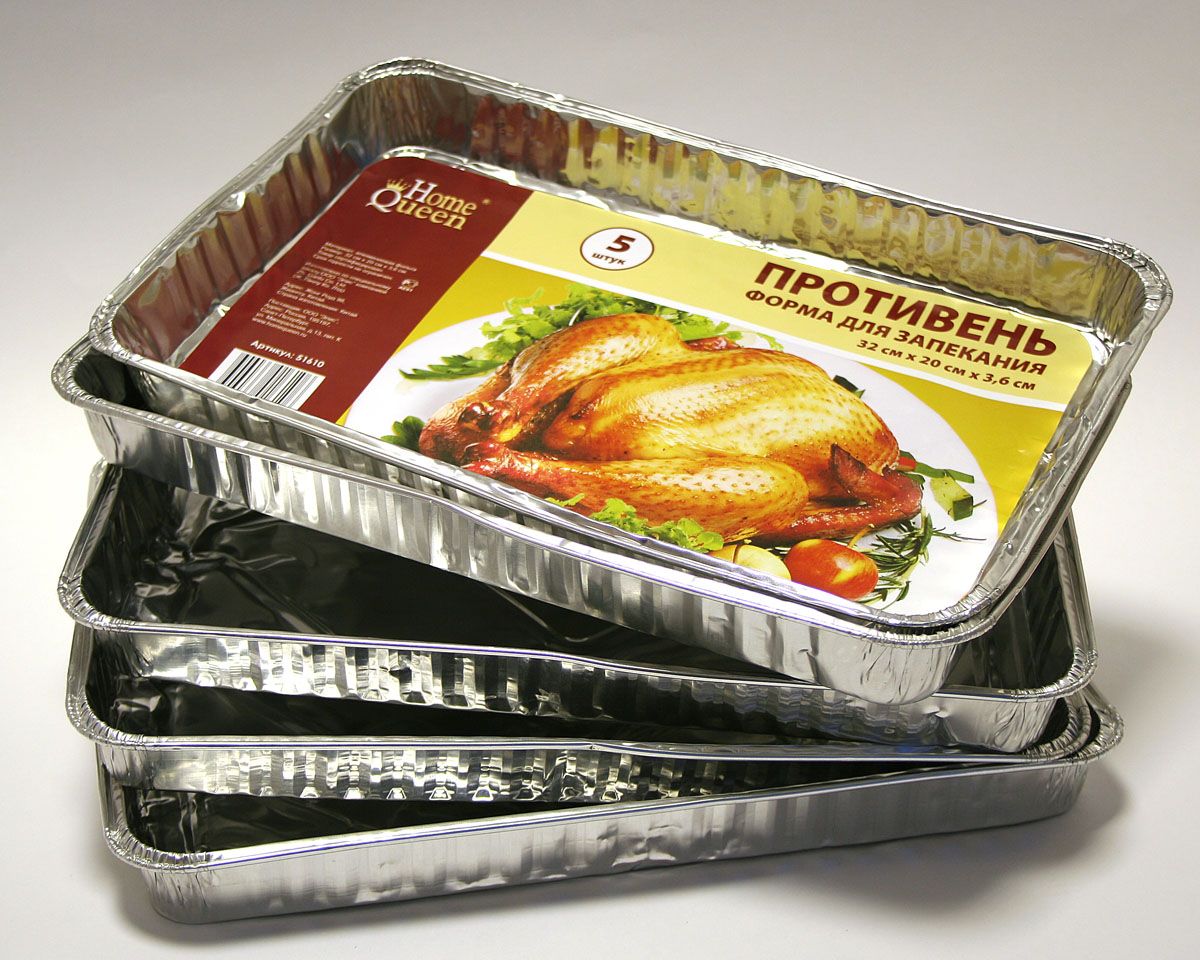
- Storing cooked food. Let's imagine a situation: a big celebration is coming up, be it a birthday or New Year's, to which you have invited a large number of people. They all need to be fed with something. Well, the food needs to be cooked first. But you can't keep it in a pot or frying pan until the celebration begins.
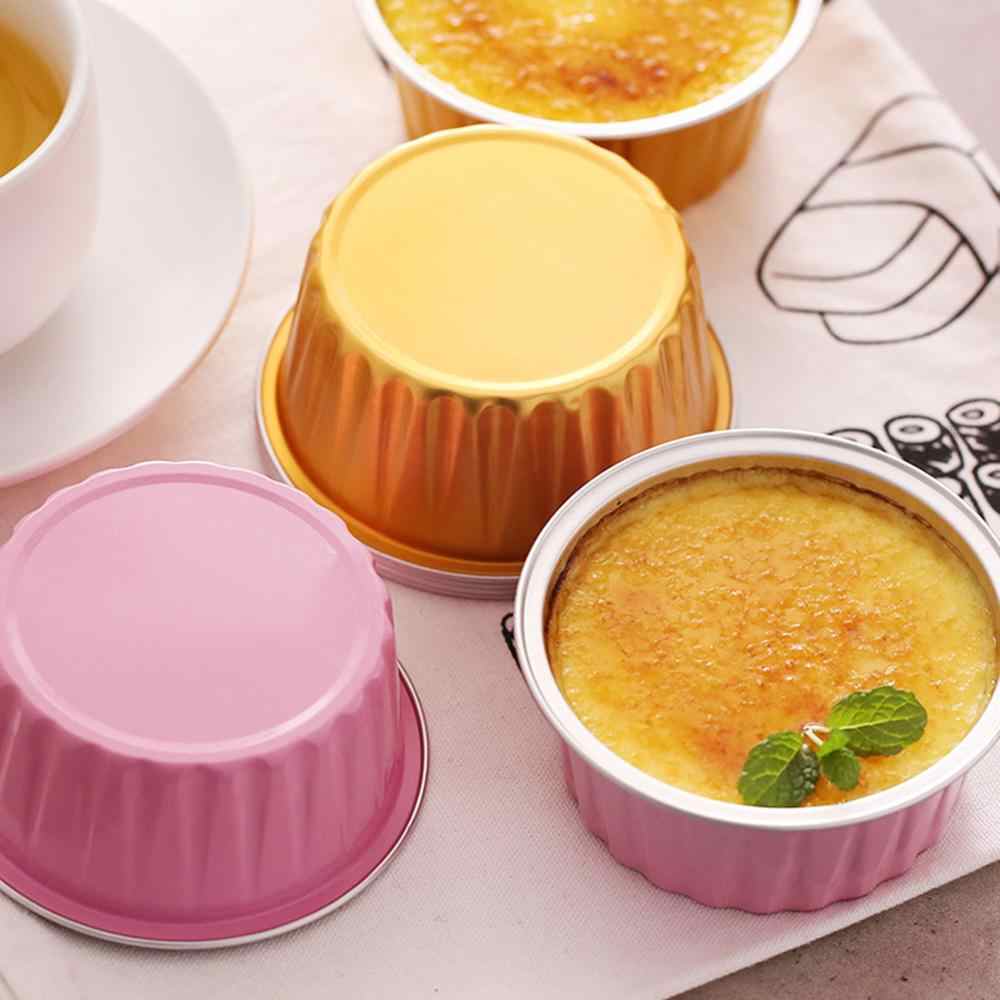
- Decorating a festive table. Agree, many housewives try to decorate the room with a variety of colorful decor in order to give the holiday a cheerful and joyful atmosphere. But few of them think about the fact that in order to raise the cheerful spirit of the holiday, it is not necessary to get expensive dishes out of the cupboard. Of course, such disposable dishes will cost several orders of magnitude more than their monochromatic, one might say classic, analogues.
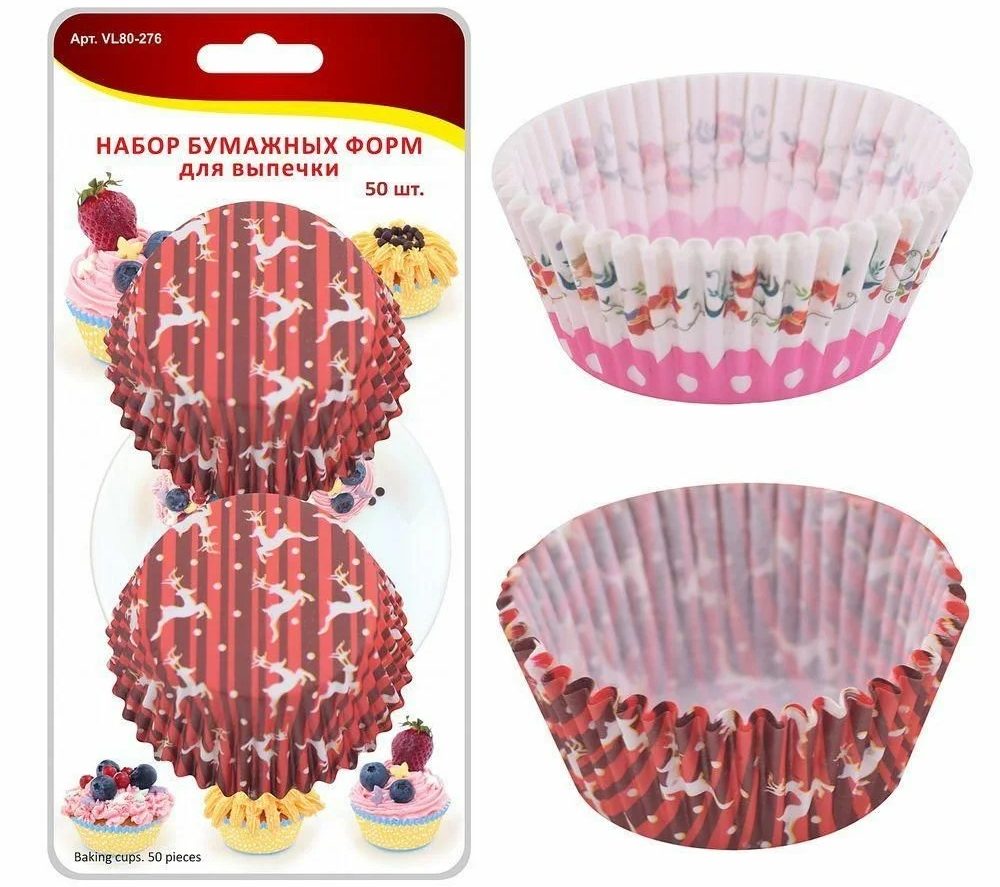
Dimensions and volume
The modern market of disposable tableware is rapidly developing and already in 2019 can provide the consumer with baking trays and baking forms of different shapes, volumes and sizes. Now we will consider the most standard values.
- A baking tray for baking muffins or cakes for multi-tiered cakes of rectangular shape and with ribbed edges has the following standard dimensions:
- Length: 185 millimetres.
- Width: 105 millimetres.
- Depth: 30 millimetres.
It is easy to calculate or guess that the volume of such disposable tableware is 600 milliliters. The weight of such a form is minimal: approximately 10 grams.
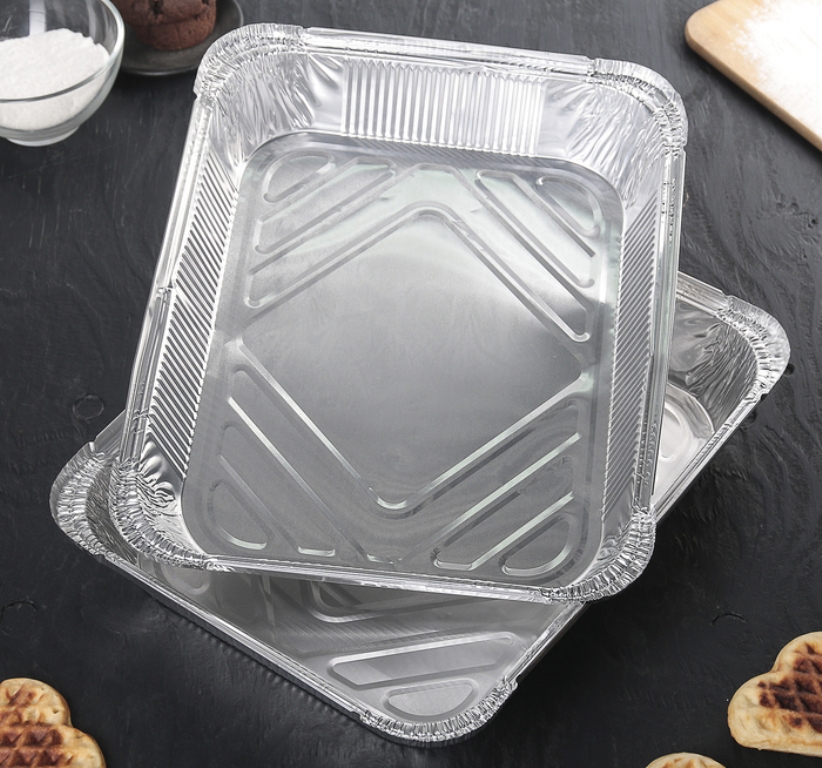
- A foil-lined round baking tray for baking thin cakes or the base for an open pie in the classic version has low sides: only 30-50 millimeters. At the same time, the diameters vary from manufacturer to manufacturer and there is no single established canon.
- Foil-lined disposable dishes for omelettes, muffins, baked vegetables or meat differ from their analogues by higher sides, starting from 10 centimeters, and, accordingly, a larger volume.
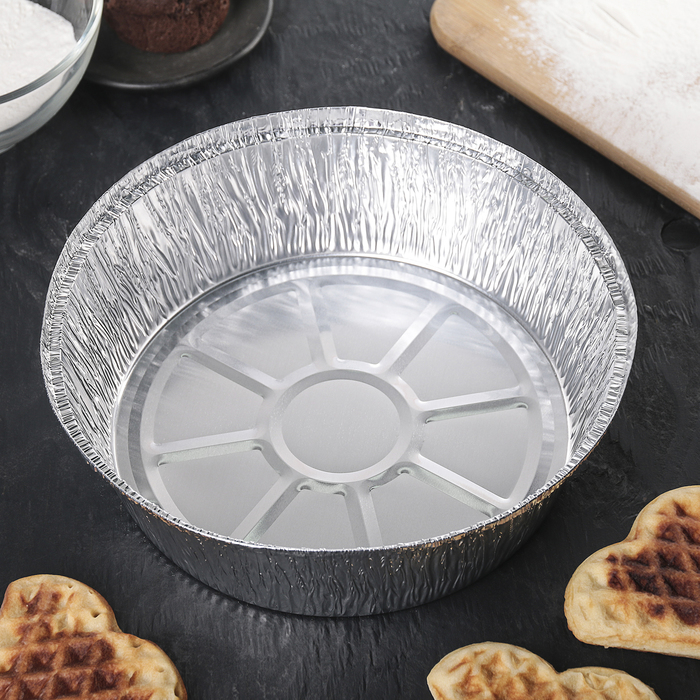
Important! We recommend paying attention to the fact that most often there is no standard indicator of length, width and depth, and as a consequence, the volume of disposable cookware. In this article, we have covered only the most common sizes, but in practice, in your region, products with completely different indicators may be manufactured.
Types of forms by purpose
Recently, such disposable tableware has become increasingly popular among beginners and housewives who want to try something new. Therefore, it is not surprising that manufacturers are inventing more and more different types of forms for their consumers. Everything is natural: the housewife will not bake cupcakes in a vegetable baking dish.
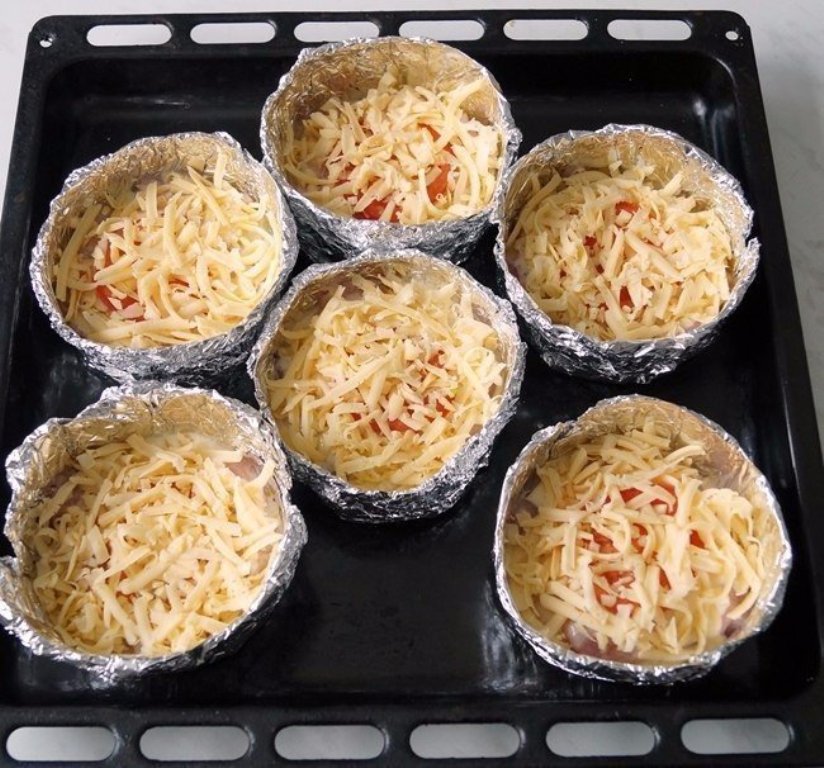
Below are listed the main types of cookware according to their purpose.
- Molds for baking muffins, miniature cakes, cupcakes or muffins.
- Dishes for cakes, sweet rolls, open and closed pies.
- Flat baking trays for cookies, sweet or lean buns.
- "Glasses" for baking Easter cakes.
- Large-volume round forms with high sides are ideal for baking vegetables (tomatoes, cauliflower, carrots, peppers), making omelettes and various side dishes.
- It is also worth noting that in disposable dishes you can heat up any food both in the oven and in the microwave, which in most cases you can’t do with regular reusable baking sheets. This is very convenient, because you can very quickly heat up your favorite dish in the microwave, without transferring it from one dish to another, thereby spoiling the impeccable and appetizing appearance.
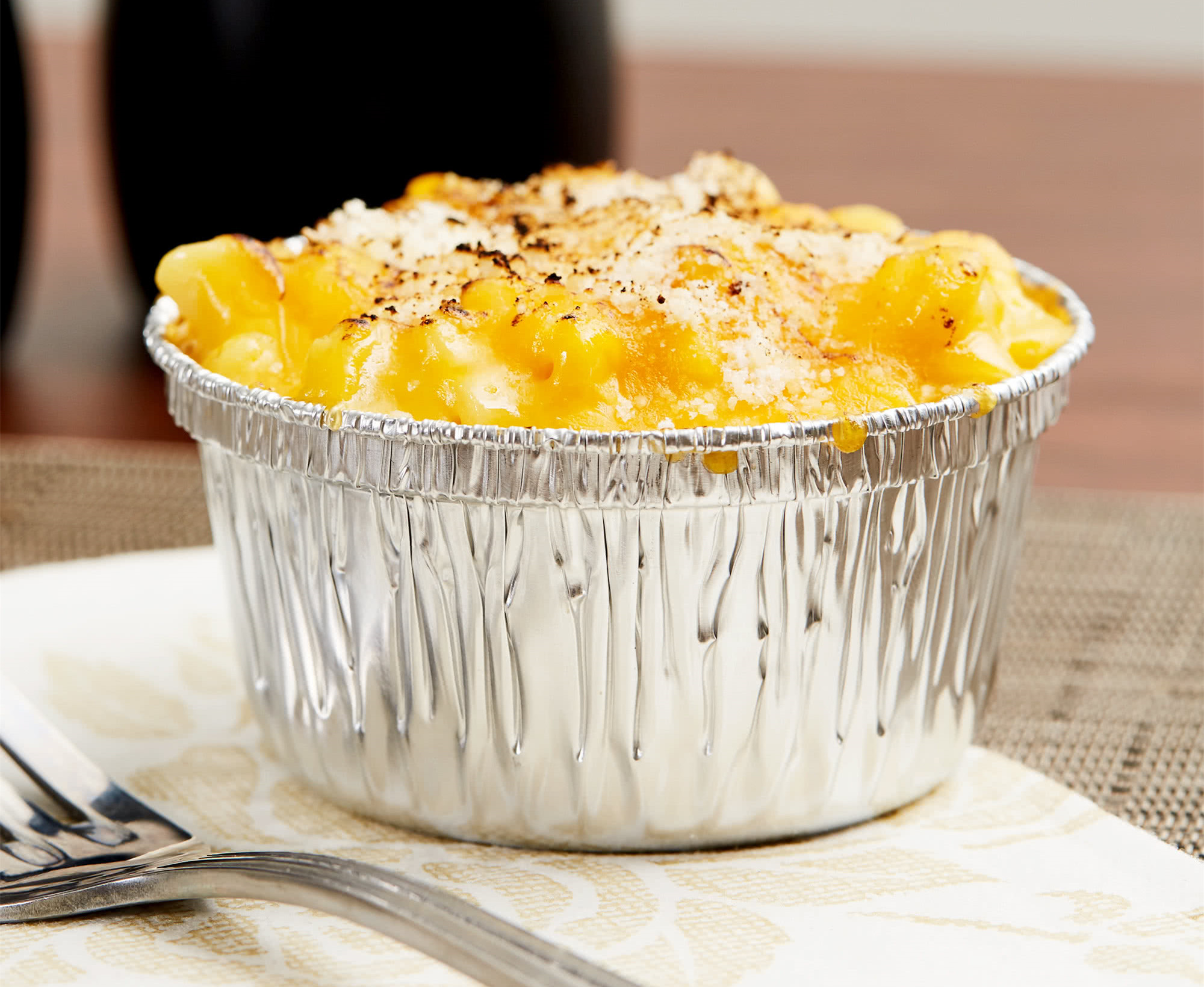
What materials are baking pans made of?
As we have already said above, the modern market can provide a large, one might even say huge, selection of baking utensils. Types of disposable baking trays differ from each other in various characteristics: shape, size, volume, design and appearance in general. But the material from which a particular baking dish was made also plays an important role. At the same time, a lot will depend on which substance is the main one in the composition. Starting from what temperatures the baking tray can withstand and ending with its price.
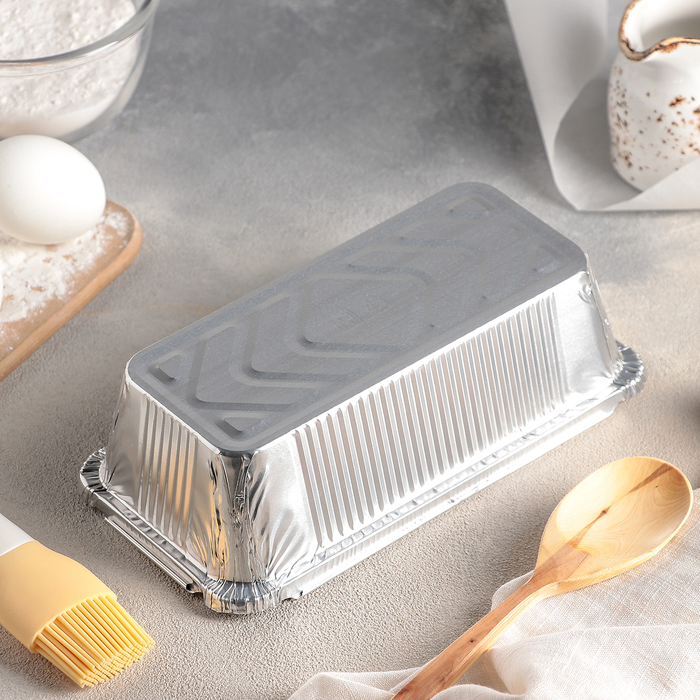
Let's list the materials that are used most often:
- Paper. The cheapest, most environmentally friendly, but no less durable material.
- Foil. Also a durable material, but very harmful to the environment.
- Heat-resistant plastic. Also not environmentally friendly, but also very dangerous for human health.
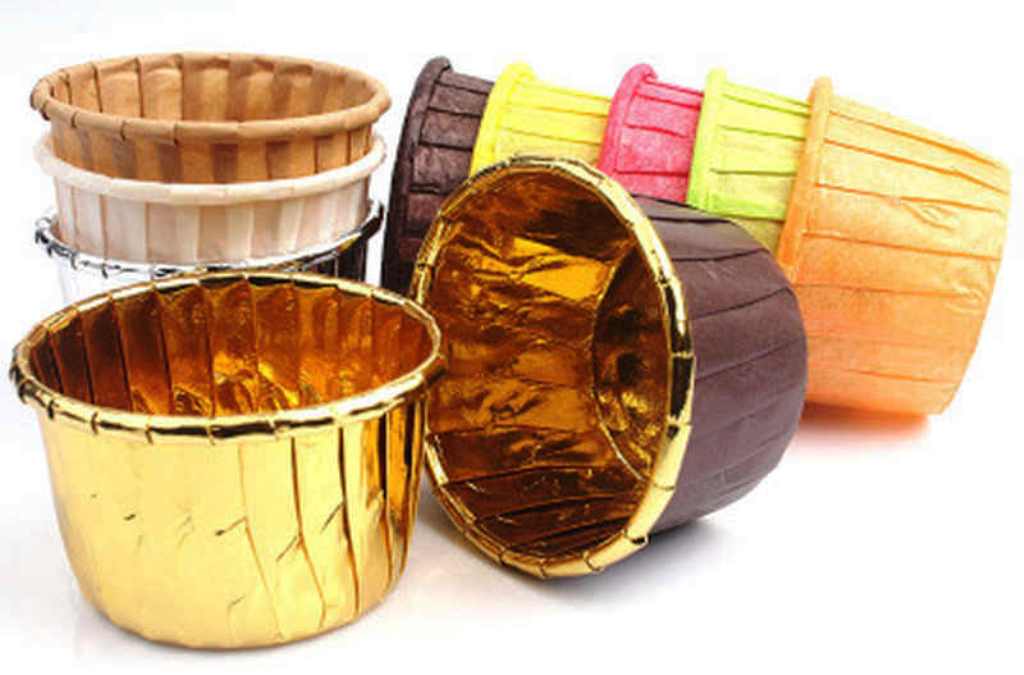
Variety of types of disposable baking pans
Corrugated
These molds are used for sweet pastries: cupcakes, mini-muffins and muffins. They are produced by manufacturers with the following parameters: wall height 5 centimeters, mold diameter 7 centimeters. Of course, from case to case, the sizes can differ significantly from each other. Such molds can have several layers, but more often such products are thin, easily wrinkled, so you need to handle them with extreme care so as not to spoil the appearance.
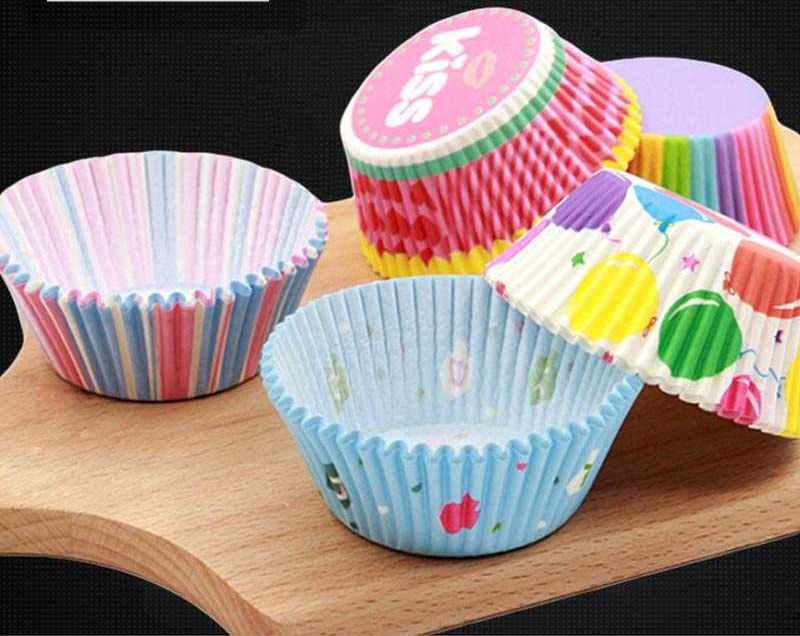
Parchment
These forms come in all sorts of sizes and are designed not only for sweet muffins, but also for cooking other foods. Such a baking sheet consists of parchment soaked in silicone or wax solution, so it will be very easy to get the prepared pie out of it.
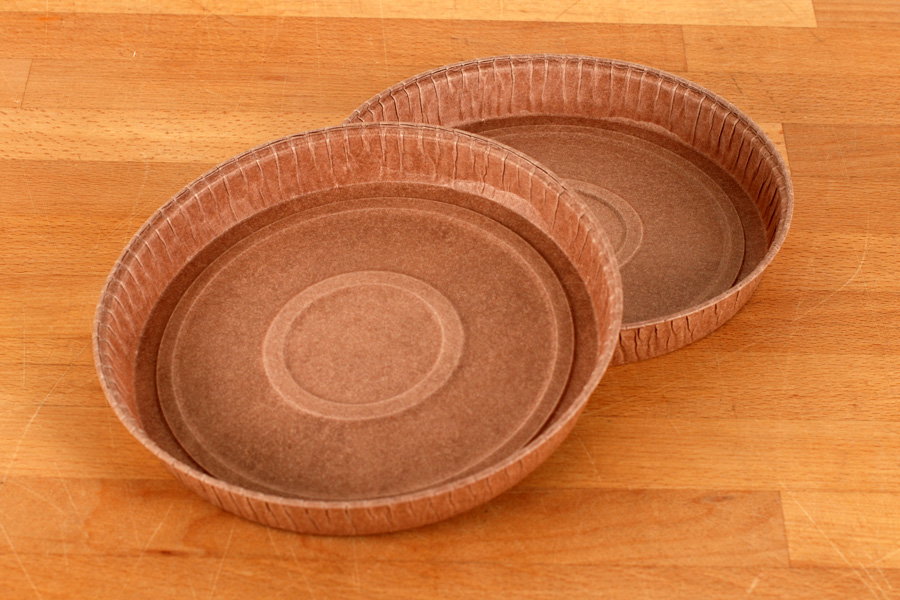
Cardboard cups
Thick, most often with a carved edge, cardboard cups with a colorful print applied around the entire perimeter look very cute and aesthetically pleasing. At the same time, they retain all the functions that their counterparts have.
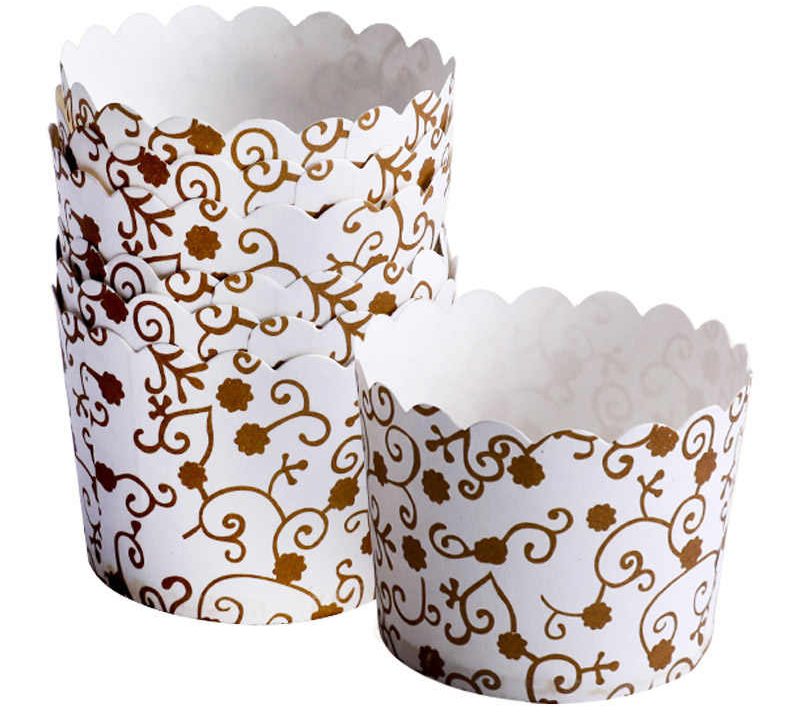
Openwork and decorative rappers
This type of molds looks very beautiful and will become a real decoration of any festive table. True, you won’t be able to bake anything in them, but you can easily decorate them! Another disadvantage of such rappers will be the price and availability. After all, it will be quite difficult to find such decorations, and they will cost an order of magnitude more than their analogues.
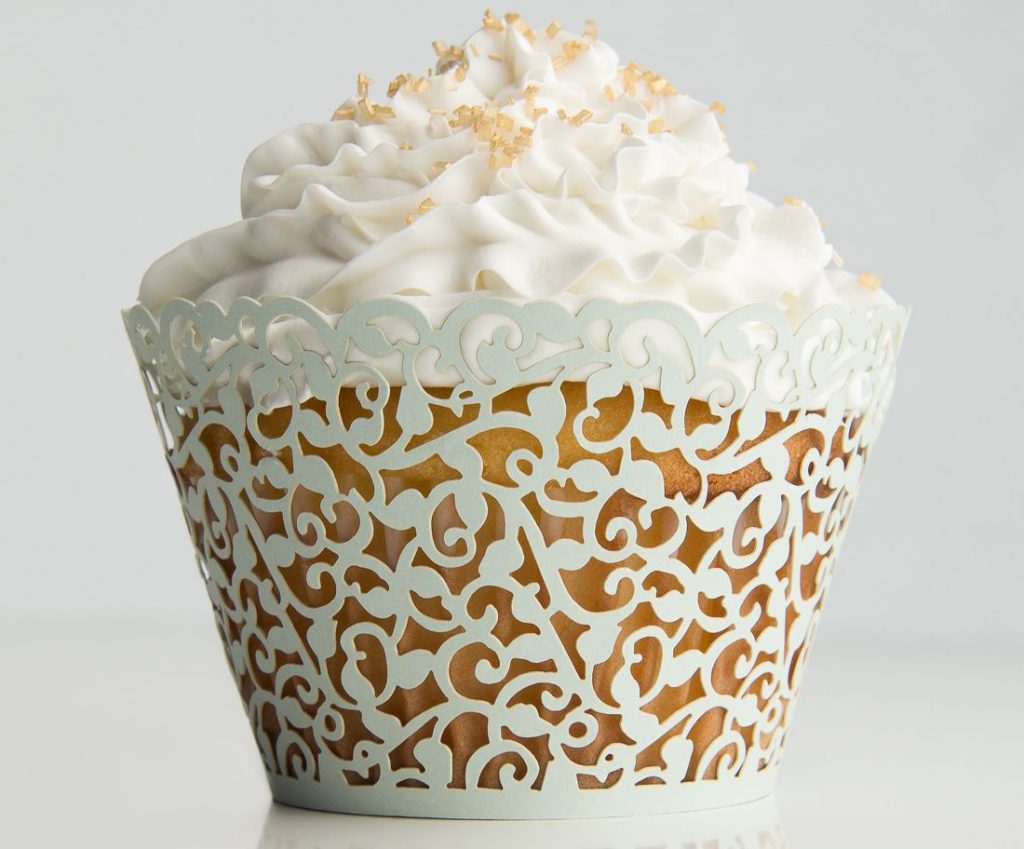
There is no specific guide on how to use disposable baking pans correctly. Everything is completely individual and depends on what type of pan you have, what material it is made of, what food you plan to cook and what secrets you resort to when preparing your dishes.

